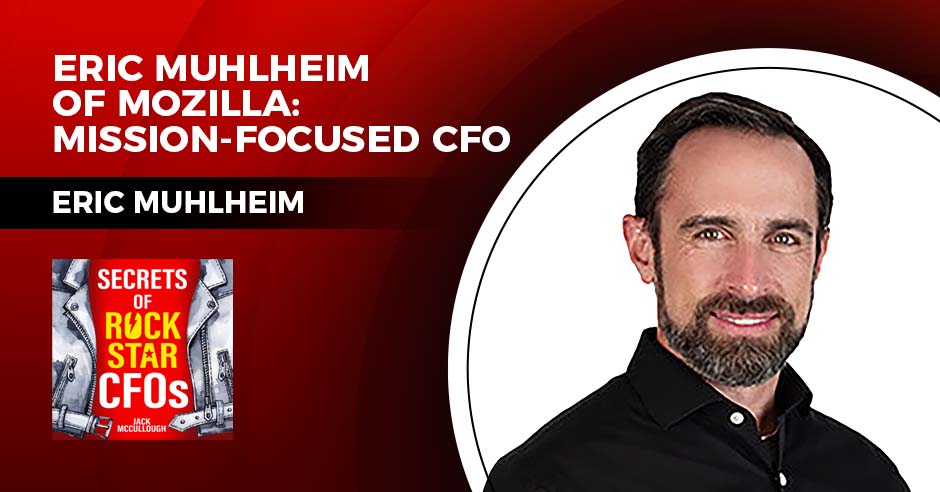How can CFOs create value across the enterprise? By taking a broad view and collaborating with everyone from the CEO to outside organizations, says Prakash Hariharan, CFO and senior vice president of consulting and advisory for Genpact, a global professional services firm based in New York City.
What are some best practices for CFOs to consider when partnering with other company leaders to enable growth within the enterprise?
Collaboration at the executive level is paramount to success, and I’ve seen more collaboration over the past 18 to 24 months than I’ve seen in many years. Whether it’s working with the CEO on M&A opportunities or addressing topical issues like cash flow and inflation, CFOs are looking at the big picture and connecting the enterprise.
Finance leaders have implemented artificial intelligence and machine learning technologies to improve business processes. With AI becoming mainstream, CFOs should increasingly look to leverage these capabilities more broadly such as using AI to create short term financial forecasts.
To create new strategies, improve production and strengthen engagement models, CFOs need to enhance their partner ecosystem. I see more companies collaborating with startups and academic leaders to learn new management ideas.
Leading CFOs are also playing an active role around demand creation and fulfillment. They are spending more time focusing on pricing and profitability management, reviewing investments and SG&A costs, and driving integrated financial planning.
Having a more prominent role at the executive table means taking an active role in enterprise-wide decisions. Over recent years, CFOs have proven their ability to make technology decisions that impact the entire company by introducing technologies that, for example, enable agile and integrated planning, identify new customer segments and ways to better engage with existing customers. The key takeaway is to layer the data foundations for the benefits that AI brings through more accurate forecasts and predictions.
What technology strategies are helping CFOs with financial planning in the face of changing market conditions?
CFOs no longer have the luxury to plan a year in advance. As companies have become accustomed to operating in volatile conditions, the ability to create and adapt financial plans has become essential. Over recent years, top CFOs have demonstrated their value as business partners, shaping and leading the business strategy, especially with developing a technology strategy.
Enterprise performance management technology enables financial modeling, planning, forecasting and analysis. Integrated with enterprise resource planning systems, these technologies improve budget and forecasting capabilities, run modeling and consolidate data from across the business. They also offer user-friendly reporting and dashboarding that can increase efficiency across the enterprise. Our experience has seen EPM technologies cut management reporting time in half, reducing manual data collection by up to 75 percent, and accelerating budget reviews and approvals by as much as 80 percent.
The latest applications use AI to provide predictive analytics and forecasts with models that continuously learn from feedback and fuel planning. From sales and operations to marketing, CFOs are democratizing access to data that previously had to be delivered by finance teams. The key is for CFOs to think of these technology solutions as a business solution to work in a holistic manner throughout the entire company.
How is data being leveraged by CFOs to develop and implement strategies to improve forecasting agility and accuracy?
The uncertainty experienced as the pandemic took hold led companies to tread carefully, concerned with survival rather than growth. For CFOs, this meant strengthening cash flow, securing employee safety and managing costs. For many companies it also led to an acceleration of their digital transformation plans. With the right data foundations, leading CFOs are now able to give more people access to accurate forecasts and insights that unlock growth.
Here are a few recommendations to improve forecasting:
- Take a holistic approach to forecasting by looking across the enterprise and connecting business units, which creates agility and improves accuracy.
- Build a data-first architecture that combines internal and external data and can extract insights from both structured and unstructured data using technologies such AI and natural language processing.
- Migrate data to the cloud to establish a single version of data truth.
- Invest in dashboards, which make it easy to share and understand information.
CFOs are taking on the task of enterprise data governance alongside the chief data officer. This ensures that data is treated as a strategic asset and there is independence and accountability for each function. With a 360-degree view of data and robust governance across the company, CFOs are improving the speed and accuracy of their companies’ forecasts.
How do CFOs work to allocate capital to drive growth versus driving M&A/divestiture?
M&A, digital transformation and insights from data are all drivers to achieve growth with organic and inorganic expansion of the customer base. CFOs have an increasingly strong focus on improving customer retention and acquisition, increasing operational capacity and focusing organizational resources to where they will be most useful. This means they are using data and planning capabilities to achieve these enterprise goals in partnership with other leaders.
Similarly, CFOs have an expanded role in inorganic growth decisions through M&A to enter new markets and target new customer segments. There are numerous examples within the consumer goods industry where companies are expanding their ability to go direct to consumers or tap into adjacent markets. They are also identifying which parts of the business to divest to focus on what’s core to their businesses.
Whether acquiring or selling, CFOs can also use their skills in business transformation to rethink processes, eliminate silos and ensure the business gets the expected returns from these strategic decisions.








